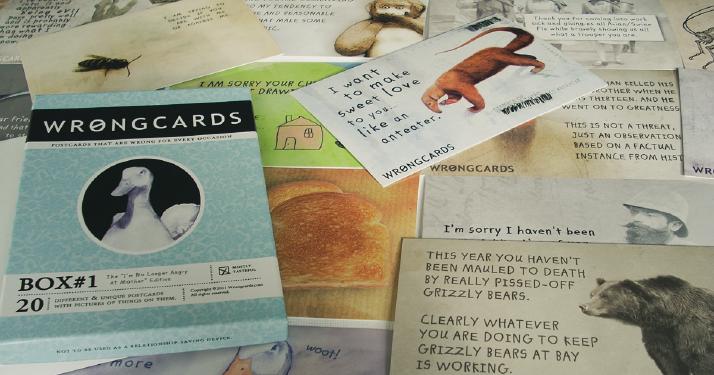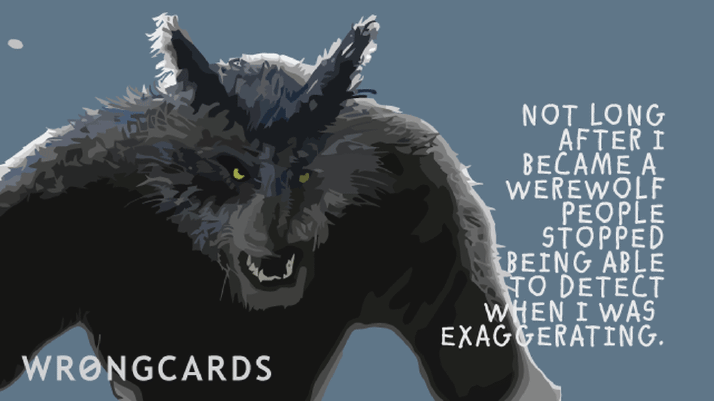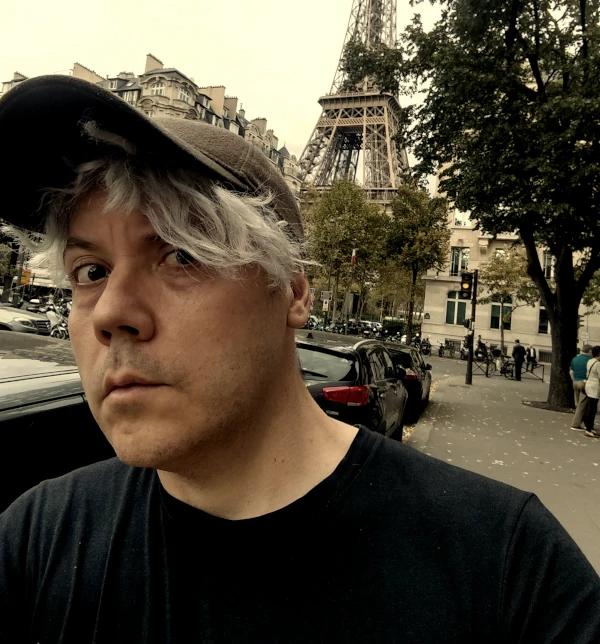Short Bio
I was born in Cairns, in Queensland, Australia. My mother’s side of the family descend from Irish convicts, magistrates, and horse-thieves. My maternal grandfather and great-grandfather worked as police officers in Sydney. My mother cleaned motel rooms and worked with people with disabilities.
My father’s family seem to have been idlers, layabouts and vagabonds. I know little about them; my father mumbles a lot, and frequently talks such nonsense that my mind wanders. I do know he was a professional car thief, though usually he repossessed automobiles for finance companies which, in the interests of respectability, I rarely mention.
My family was itinerent and I attended thirteen schools. Like most boys of my generation, I rode my bike everywhere, and stayed out until dark. I played on train bridges, and was in almost weekly fights with bullies (my front tooth is still chipped from a fight with an older boy). I seem to have spent a lot of time in the upper branches of trees.
We, among many other families, were very poor. I remember buying day-old bread for two-cents a loaf, directly from the trucks making deliveries to pig farms down the road. One time after a spell of going hungry, I ate so many stale buns I got a stomach ache and my mother had to take me to a hospital.
Interest in Technology
I started programming at the age of eight on a TRS-80, in MS BASIC. At Griffith University, I audited as many IT classes as I could. In this way, I learned PROLOG and C++. Later, I taught myself JAVA. My primary interest – artificial intelligence – was not considered a practical field in the 1990s, so I majored in Cultural Studies, and wrote my Honors dissertation about satire in the Soviet Union. Because the subject of dissident thinkers living under totaliarian regimes will always be relevent.
After graduating, I worked and traveled. I have lived in Germany, Austria, Spain, and – for approximately 16 years – the United States. I have two daughters, and we divide our time between Maine in the US, and Queensland, Australia. I am currently thinking about getting a dog.
A Brief Summary of My Professional Life
For approximately three years I was the IT Guy for the Countway Medical Library at Harvard Medical School, and also Harvard Health Publications. I was then invited to join a lab in the Center for Biomedical Informatics at Harvard, where I worked as a Biological Software Engineer, and maintained code for an interactive orthology database. After showing an aptitude for graphic design, I became a creative director in the same organization.
As a freelancer, I’ve built websites for Adobe, Stanford University, UCSF, the University of Washington, Caltech, and even created some content for Comedy Central. In 2014, I was on the judges panel at Biomod, the international biomolecular design competition. I also designed their logo.
I am a little internet-notorious for having founded Wrongcards, a satirical ecards website that is still popular today.
Books
I’m the author of The Harvard Skull Fiasco and Rise of the Blue Bandicoot. Two more novels are coming in 2024.
My Skillz
Programming languages are of particular interest. I have worked with Python, Ruby, and PHP, though nowadays seem to enjoy coding exclusively in Golang. The task of writing software forces one to think carefully about one’s objectives. Structure is a key consideration; one is ideally seeking to solve a set of problems with both elegance and simplicity. All of which can be helpful to someone who writes novels. Douglas Adams was a programmer.
Designing, Illustrating
Among other things, I design and illustrate. One time, I created and published this box of postcards.

Look at that box cover! Look at the Duck!
(Most of those cards were sketched during meetings at Harvard, while I listened to departmental heads argue about the best way to squander their research grants.)
I also hand-coded and designed this website, wrongcards, and many others. If I had time for hobbies, I’d probably definitely describe web-design as one.
My Real Expertise is Creative Thinking
This is a bold claim; however, it is backed by something that 99% of self-proclaimed ‘creativity experts’ seem to lack:
Evidence.
The process of creative thinking describes a technical framework for finding interesting, workable solutions for tricky problems. (One of the reasons I believe everybody should write is that the practice teaches the mind to become gradually more patient, coherent, and capable of both expressing and perceiving subtleties.)
Unfortunately, in my qualified opinion, most books about creativity are not good. Most of the supposed luminaries in the field aren’t creative at all, and few can even draw an adequate werewolf. It’s a simple test; chefs do something similar in the kitchen. They sometimes challenge other chefs to prepare simple meals like scrambled eggs. My argument? If somebody claims expertise in realm of creativity, but cannot draw an interesting-looking werewolf, then I suggest you shun them. In fact, I would go even further and say you should spurn them, as you would spurn a rabid dog.
For it is a truth universally acknowledged that all creative people will, at a certain juncture, draw at least one werewolf. If this undeniable fact was unknown to you, it may be because the field of creativity has been colonized by pop-psychologists, and none of those hacks – not a single one – seems to have ever produced a werewolf worthy of mention. Imagine if psychologists cornered the market on cookbooks by tricking the world into believing chefs are somehow too practical to invent recipes.
“Because cooking is a mental process,” they seem to argue. “And it all happens in the mind, doesn’t it? So, er, that’s our area of expertise,” they add, with a pleading look in their eyes. “So please buy my cookbook! I’ve never even been in a kitchen, but the Department Chair is on a warpath and if I don’t market myself as an authority on vol au vents, I’ll be out on my ear before Christmas!”
Yes, the public discourse surrounding creativity is in a dreary state, and nobody seems to know where it all went wrong. Well, someone probably knows, but all the proof and data has been locked away, concealed from public scrutiny by a wily cabal of pop-psychologists, and now the truth may never be uncovered.
So what have we learned? Well, I can only say it so many times – if you’d like to know more, subscribe to my newsletter.

Oh look. I seem to know what I’m talking about. Can you draw like this, Malcolm Gladwell? HA DIDN’T THINK SO. LAME.
